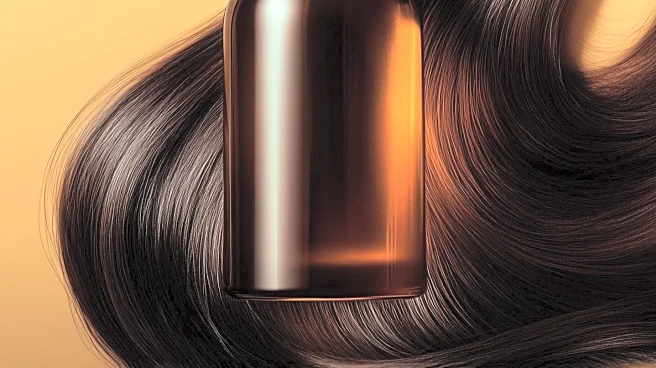What's Happening?
Sarah Snook, known for her Emmy-winning role in 'Succession', stars in the new Peacock TV miniseries 'All Her Fault'. The series begins with Snook's character, Marissa Irvine, a wealthy mother, discovering her son is missing after a playdate. The narrative
unfolds in two directions: the present-day search for her son and flashbacks revealing the mysterious pasts of various characters. The series, adapted by Megan Gallagher from Andrea Mara's novel, features a strong female cast including Dakota Fanning and Abby Elliott. The story is told from the perspectives of these women, emphasizing their differing viewpoints and memories.
Why It's Important?
The series 'All Her Fault' is significant for its focus on female narratives and perspectives, showcasing the emotional depth and complexity of its characters. It highlights the importance of women's roles both in front of and behind the camera, contributing to the ongoing conversation about gender representation in media. The performances by Snook, Fanning, and Elliott are central to the series' success, offering a psychological drama that resonates with audiences. This focus on women's experiences and viewpoints is crucial in diversifying storytelling in television.
What's Next?
As 'All Her Fault' continues to air, it may influence future television productions to prioritize female-driven narratives and complex character development. The series could inspire more adaptations of novels that focus on women's perspectives, potentially leading to increased opportunities for female writers and directors in the industry. Viewer reception and critical acclaim may further encourage networks to invest in similar projects, expanding the scope of stories told in television.
Beyond the Headlines
The series not only entertains but also prompts discussions about the societal roles and perceptions of women. It challenges traditional narratives by placing women at the center of a thriller, exploring themes of blame and responsibility. This could lead to broader cultural shifts in how women's stories are valued and portrayed in media, encouraging more nuanced and diverse representations.















